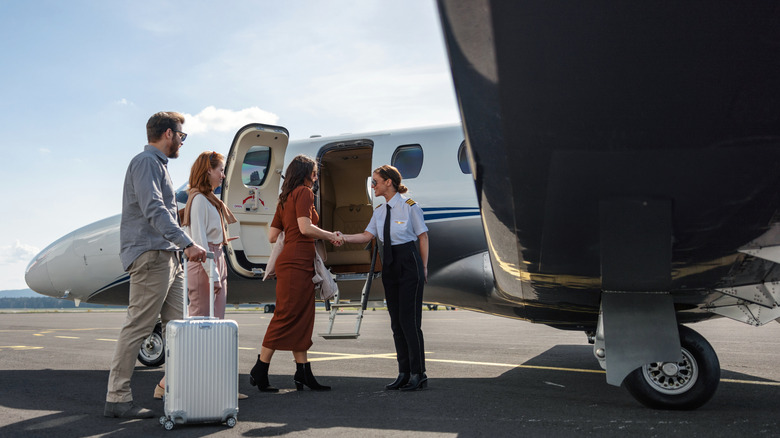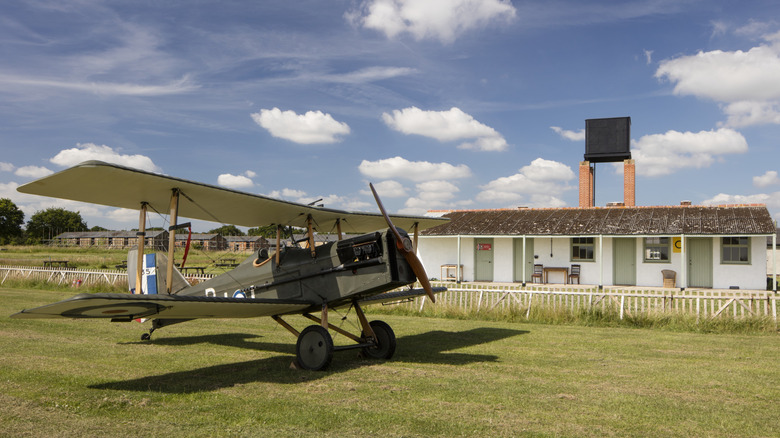Why Are Private Jet Airports Called FBOs?
Flying private introduces you to a whole new world of luxury, integrated into every step of your travel. Private jets fly higher than commercial airliners, offering more comfortable rides and less turbulence. Moreover, private jets offer a safer flying experience. And the luxury begins before you even set foot in the private jet.
Private jets have separate airport terminals, aka FBOs, which offer greater convenience than a regular airport terminal. While they vary in the services they offer, the better ones feature dedicated lounges, offer complimentary drinks and snacks, and might even offer pickup and drop-off services. The common thread is that FBOs make the boarding process much more laid-back and premium.
FBO, or fixed base operator, is primarily an American term, but it's now used worldwide to refer to private jet terminals. The technical-sounding jargon dates back to the post-World War I era and has an origin story worthy of its history. Let's find out why private jet airports are called FBOs, and the benefits of using one while flying private.
Where did the term FBO come from?
Today, commercial aviation is tightly controlled and strictly monitored by aviation authorities around the globe. It's hard to imagine, but commercial aviation was almost unregulated before Congress passed the Air Commerce Act in 1926.
During the 1920s, many military planes had no function, since World War I — the "war to end all wars" — had just ended. Commercial pilots were allowed to purchase these planes and fly them for commercial purposes. As commercial aviation had little to no infrastructure and regulations, these pilots would often set up temporary bases on farmland. Pilots would use the farmland as runways to take off and land, moving around the country to put on shows that earned them the title of "barnstormers."
To regulate the makeshift nature of commercial aviation, the Air Commerce act introduced much stricter regulations for pilot training, pilot licensing, and airplane maintenance, and made it harder for flying businesses to operate from makeshift bases on farmlands. The businesses that transitioned to fixed bases of operation coined the term "fixed base operator" to stand out from the competition. Today, the U.S. has about 3,000 FBOs, and most airports with a constant influx of business passengers offer some form of FBO services.
Benefits of flying through an FBO
FBOs can offer a variety of amenities, including dedicated waiting lounges equipped with comfortable seating, entertainment, food, and more. Additionally, most FBOs have separate parking, making them easily accessible, rather than parking miles away from a regular terminal and navigating your way to it. The separate parking is great for people who want to enter the airport privately, without attracting attention. Moreover, as FBOs are often used by business travelers, some FBOs sport conference rooms and quiet corners to take calls.
A particularly excruciating aspect of taking a regular flight is standing in long queues for Transportation Security Administration and customs clearance. While the TSA has been implementing new technologies like facial recognition to streamline the security process, long lines still haunt frequent travelers. FBOs have separate and often much shorter immigration and security queues, so travelers experience much faster boarding. Some FBOs also offer concierge services to assist with your luggage and other needs. Apart from these customer-facing benefits, FBOs also offer airplane refueling, maintenance, and resting facilities for the air crew.


